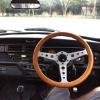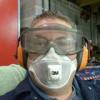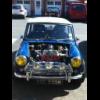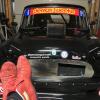
1275 To 1380
#1

Posted 05 December 2015 - 10:29 AM
Does anyone know any companies in Yorkshire that would bore my 1275 cylinder block to a 1380, for a reasonable price?
Cheers :)
#2

Posted 05 December 2015 - 10:35 AM
Better to go to 1293 as a first re-bore and thus preserve the life of the block.
There is little further gain by going to 1380 unless it is for a competition engine where the potential scrapping of the block at the next re-bore (or very expensive sleeving back) is not so important..
There will never be any new A-series blocks made (don't believe the possible new 'S' blocks will be affordable!) and maximum re-bores will simple further reduce the availability of engines for our classic cars.
#3

Posted 05 December 2015 - 10:46 AM
If so what sort of performance do you get out of it and what other components do you have I.e carbs, Pistons etc.
Going to be building an engine for a mini I have coming soon
#4

Posted 05 December 2015 - 10:53 AM
Ac
#5

Posted 05 December 2015 - 11:50 AM
#6

Posted 05 December 2015 - 11:59 AM
Cheers James
#7

Posted 05 December 2015 - 12:32 PM
Hi
Does anyone know any companies in Yorkshire that would bore my 1275 cylinder block to a 1380, for a reasonable price?
Cheers :)
Redline in Brighouse. Has been known to do the odd A series over the years.
#8

Posted 05 December 2015 - 03:28 PM
Ac
#9

Posted 05 December 2015 - 04:38 PM
I would actually suggest offset boring to +0.060". Then you can get 73mm and then 73.5mm. This way it maximises the size, verses life.
Ac
Could I ask how much you charge to offset bore a block?
I've often wondered whether the extra expense of offset boring + pistons ect would be better put towards the cost of a good cylinder head. This is of course assuming that the current bores and pistons are good.
#10

Posted 05 December 2015 - 04:58 PM
Is that what you have in your mini? A 1293?
If so what sort of performance do you get out of it and what other components do you have I.e carbs, Pistons etc.
Going to be building an engine for a mini I have coming soon
To get the best specification for your classic car you need to decide for what it will be used. If it is for use on the road, then you need to aim to have a driveable car which has good road manners. You have a 55 year old design and it's never going to go like a modern car - indeed, as a classic car enthusiast you wouldn't want it to.
However, if it a competition car to be used for serious events, then an entirely different specification will be appropriate, but one which will cost several thousands of pounds to achieve.
There really is little point in a huge over-bore on a road car, just go to the next bore size up from what you have in order to fit new pistons. Then build it very carefully with a nicely gas-flowed head, a good road cam and matched inlet, exhaust and carburation. Combine that with a matched distributor curve and an appropriate final drive ratio (FDR) and it will drive very well, in a 'classic retro' way.
Personally I feel that all this '1380 business' is just for 'saloon bar bragging rights' and a good 1275, 1293, 1310 or 1330, in that order of re-boring, perform really well when the engine is accurately and correctly built and combined with appropriate FDR's.
My 1964 Cooper 'S' is a full-on International spec rally car. It has over 100 bhp at 6400 rpm, but it has everything appropriate done to it. To build such an engine would cost well over £6000 and it is horrible to drive on the roads (but superb on a rally special stage!).
Edited by Cooperman, 05 December 2015 - 05:04 PM.
1 user(s) are reading this topic
0 members, 1 guests, 0 anonymous users

















